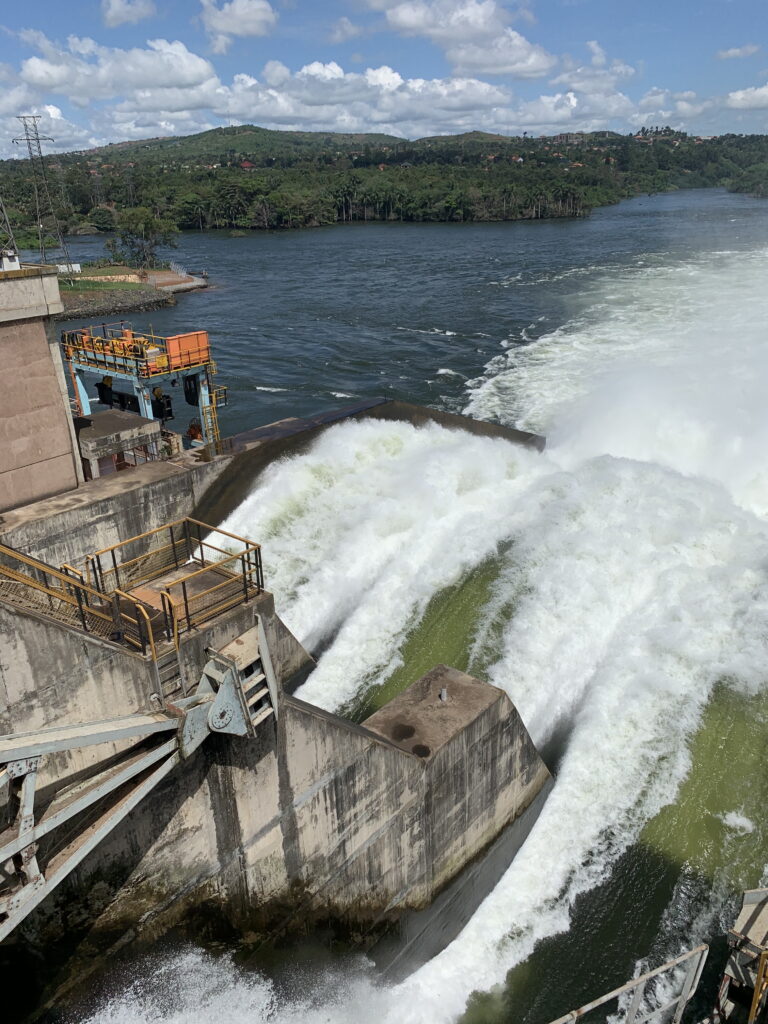Sustainability Impact Accelerator
The Sustainability Impact Accelerator is an innovative capacity development tool for transferring knowledge from Sweden to our in-country partners. We support investments in sustainable and bankable infrastructure projects in low- and middle income countries by supporting strategic risk management through project-specific training, upskilling and aligning stakeholders.
Our Sustainability Impact Accelerator is grant-funded by the Swedish International Development Cooperation Agency (Sida) and has been running as a pilot since 2021. We implement projects in close collaboration with Team Sweden and various Swedish embassies. Population growth, migration and urbanisation trends all demand an increase in critical infrastructure, especially in low- and middle-income countries. Securing the infrastructure needed to achieve the Sustainable Development Goals (SDGs) will require public and private sectors to work together to finance and implement projects in the transport, energy, water, health, agriculture and IT sectors. The challenge of financing infrastructure for the SDGs is not just about mobilising funding and closing financial gaps. On a more systemic level, it is about having the capacity to plan, implement and manage large-scale projects. The same logic applies to investments in emissions reduction and transitioning to a fossil-free, climate-neutral economy. Large-scale infrastructure projects often bring other risks and conflicts of interest to people and planet. If not effectively managed, these risks may impede international lenders from engaging due to non-alignment with financial sector standards. For example, IFC Performance Standards and the UN Guiding Principles on Business and Human Rights. In 2024, we supported partners in Tanzania, Côte d’Ivoire, Mozambique, Zambia and Ukraine. Over the last quarter of 2024, we began preparing support to 10 new partners in these 9 countries: Algeria, Colombia, Egypt, Indonesia, Nigeria, Philippines, Senegal, South Africa (Southern Africa Power Pool) and Vietnam
90
projects in the pipeline
15
in-country partners
14
countries in total
Annie Ross
Programme Director, NIR
We accelerate projects in the following sectors:
Clean energy (including biofuels)
Electrification, grid stability and efficiency
Sustainable transport
Water and waste
Forestry
Railway
Infrastructure development projects require planning and capacity during the pre-investment and implementation phases to address the financial, legal, technical and sustainability challenges of a project. Adverse impacts can be avoided and a more positive sustainability impact achieved when a project owner has the right kind of support at the right time during project development.
The Sustainability Impact Accelerator offers a wide range of capacity development in areas such as:
⦁ Policy making
⦁ Technical training
⦁ Project management
⦁ Compliance with international sustainability standards
⦁ Sustainability (social, economic and environmental)
⦁ Change management and strategic leadership
⦁ Administration
⦁ Stakeholder dialogue
Programme Highlight
Tanzania – Investing in connectivity by electrified railway
Tanzania’s new Standard Gauge Railway (SGR) is considered the region’s most modern electrified railway. The SGR began carrying passengers between Dar es Salaam, Tanzania’s commercial hub, and Dodoma, the capital, in summer 2024. By the end of the year, well over a million passengers had used the SGR as transport. Tanzania Railway Corporation (TRC), Tanzania’s state-owned railway company, is the operator of the SGR.
The SGR has already begun improving transport, increasing business efficiency and providing a faster and safer mode of transit for passengers. The potential for social and economic development inspired by the SGR is vast. In total, 2,500 kilometres of electrified railway are planned for, connecting the port of Dar es Salaam with Mwanza on the shores of Lake Victoria in Tanzania, extending beyond to Burundi, Rwanda, Uganda, Democratic Republic of the Congo and other countries in the region.
Infrastructural projects like the SGR offer Swedish companies substantial business opportunities. According to Business Sweden, there are approximately over 100 potential Swedish suppliers to railway projects of this size, making the SGR a strategic project for Team Sweden.
The group of international lenders for the Dar es Salaam to Dodoma stretch of the SGR require align ment with the environmental and social standards set out in the International Finance Corporation Performance Standards (IFC PS).
Supporting organisational readiness
TRC aligning with higher sustainability standards benefits both the people and environment affected by the railway line. As a partner, we support those standards being achieved by offering practical tools, including flexible upskilling, capacity development and models for stakeholder alignment.
Upskilling the Environmental and Social Team Strengthening
TRC’s capacity to manage environmental and social risks by upskilling TRC’s Environmental and Social Team members means that Swedish and other international financiers can invest in the railway. It also means that TRC has increased capacity to manage risks to the environment and communities, resulting in better outcomes for people and planet. Our partnership with TRC since 2021 has been adapted to the project cycle.
Stakeholder alignment
Our partnerships go beyond training by aligning project stakeholders, for example project owners/ partners, financiers and regulating agencies. The lack of stakeholder alignment is often one of the biggest challenges in large infrastructure projects, and can result in unintended scope changes, delays and increased costs. Effective stakeholder alignment results in proactive identification, resolving gaps that could pose sustainability risks to the project while helping keep project timelines on track. In 2024, we supported TRC to align with stake holders such as the Ministry of Finance, Ministry of Transport and the Office of the Attorney General
A closer look at the Standard Gauge Railway
Programme Highlight - Ethiopia
Increasing the potential to produce clean energy
This is one of the projects of the Sustainability Impact Accelerator. The accelerator develops sustainability of projects to align with the 2030 Agenda in OECD/DAC countries.


